CEPS Student Research Day
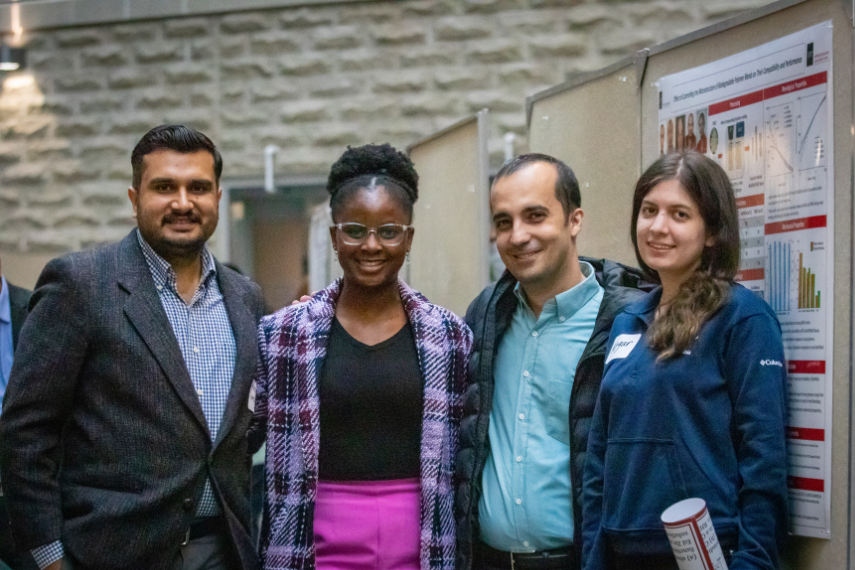
This week CEPS was proud to hold Student Research Day for undergraduate and graduate students to compete in a poster presentation. The event was well attended with students from every department competing, and the University of Guelph's Chancellor Mary Anne Chambers and the Interim Vice President of Research on hand to view the innovative research of the next generation of scientists. After welcoming remarks from Interim Dean Richard Zytner two students gave presentations on active research projects in Chemistry and Engineering.
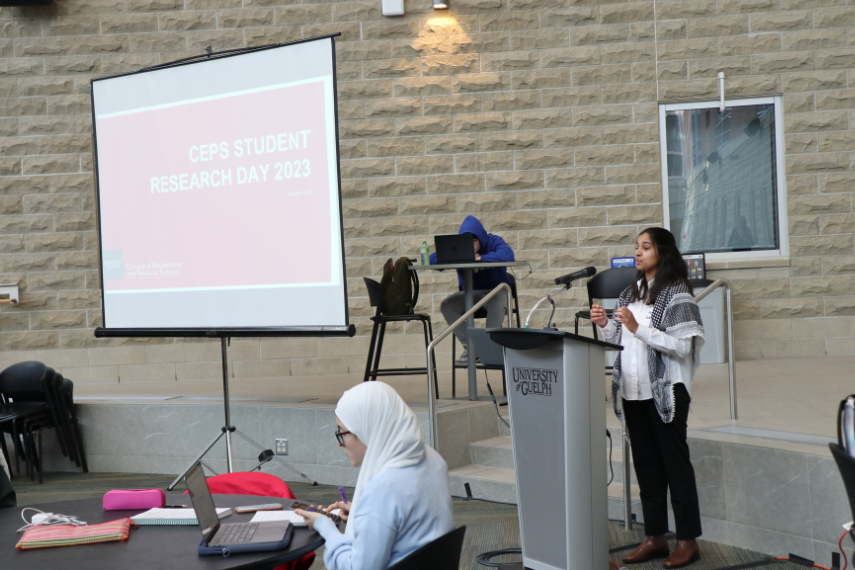
Abida Suboo, a MSc. Student in Chemistry, works with Dr. Aicheng Chen. They are working on developing a novel biopesticide for Fire Blight. Fire blight is a disease that is capable of wiping out an entire apple orchard within a season. Their research focuses on engineering the microencapsulation of a phage-carrier system, using varying polymers and drying techniques. This study will provide a trajectory to a novel biopesticide for Fire Blight.
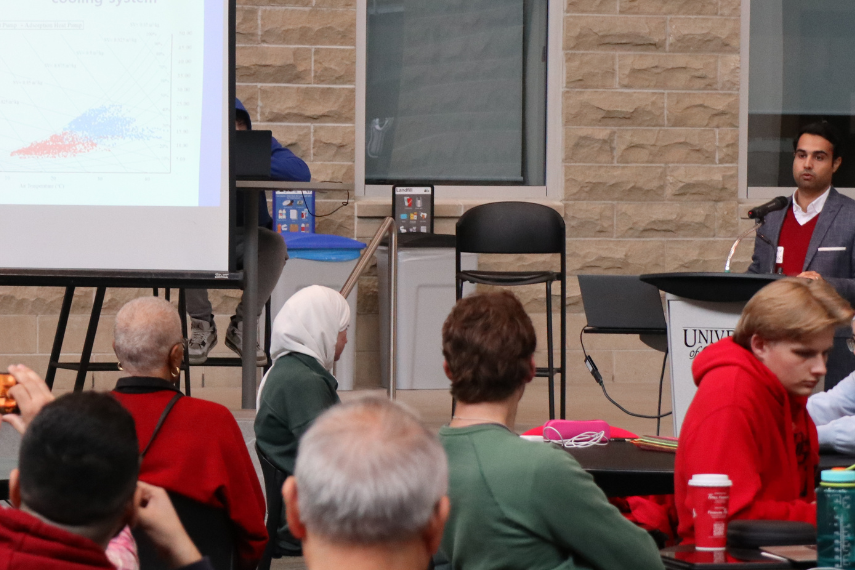
Mehran Bozorgi, is a PhD student in Mechanical Engineering, working with Dr.s Shohel Mahmud and Syeda Tasnim. They are working on sustainable energy systems for cooling purposes for residential and industrial applications. They are focusing on the development of solar desiccant cooling systems to achieve thermal comfort conditions in buildings in different climate conditions, especially in hot and humid cities.
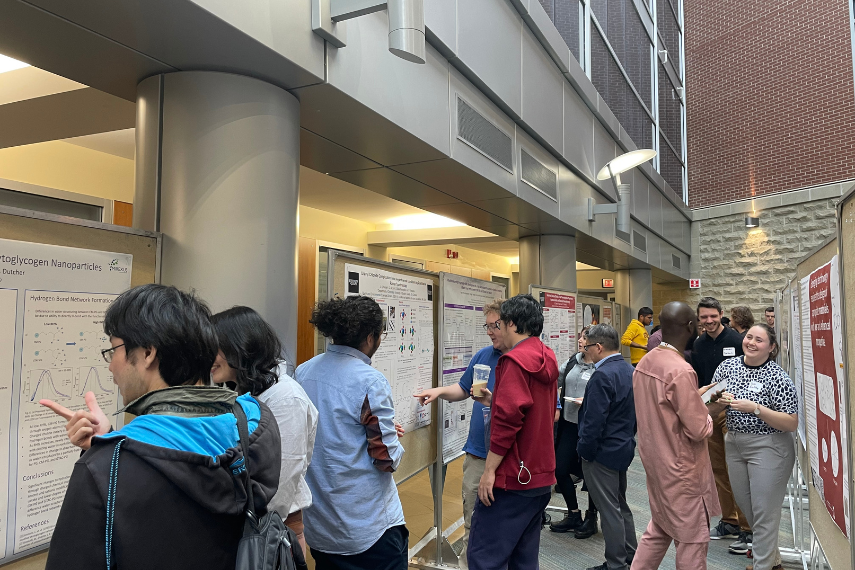
76 students participated, showcasing their research across Chemistry, Physics, Math, Engineering and Computer Science.
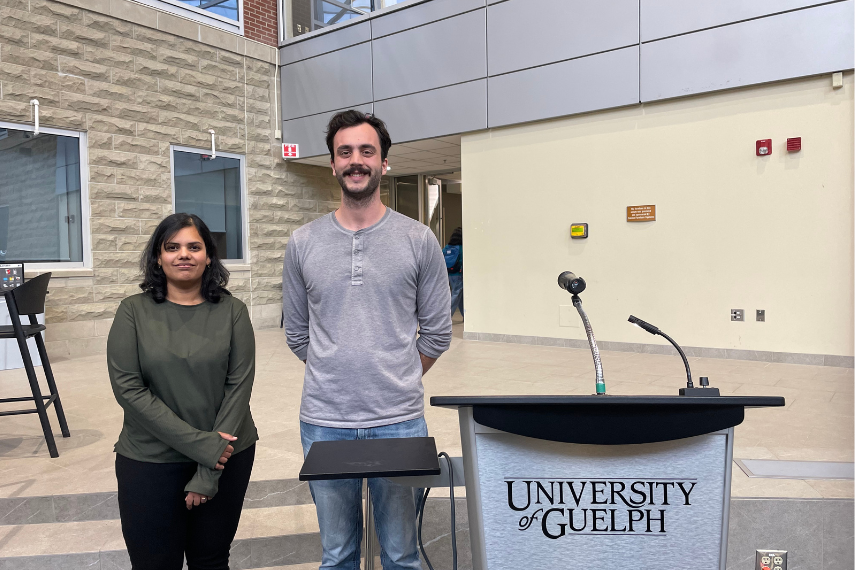
Three winners were chosen (Jenita and Joshua pictured above):
- Jenita Manokaran, pursuing a PhD in Engineering, advisor Dr. Eranga Ukwatta, won 1st place $500. Her research is looking at lung cancer survival prediction using deep learning. Lung cancer is the second most common and leading cause of cancer death globally. The research is to develop a deep-learning model for survival prediction in high-risk individuals using low-dose CTs. The AI model can assist in clinical decision-making and provide improved patient care to prolong life expectancy.
- Enshen Zhu, pursuing a PhD in Engineering, advisor Dr. Sheng Yang won 2nd place $250. The research project is looking at a video-based method for supporting automated facial mask customization. Proposing a video-based method for supporting automated facial mask design customization. The method takes a short facial video as the primary input, based on which facial data is extracted from each video frame and forms a cross-validated dataset with facial expression variations.
- Joshua Van Der Zalm, pursuing a PhD in Chemistry, advisor Dr. Aicheng Chen won 3rd place $100. Photoelectrochemical degradation of atrazine by modified nanoporous titanium dioxide.The presence of potentially harmful organic compounds in our waterways is an unintended consequence of feeding the growing human population. We employ a titanium dioxide-based photoelectrocatalyst to degrade atrazine, a commonly used herbicide in north America. In tests, we have successfully removed 98% of atrazine with this advanced oxidative process.